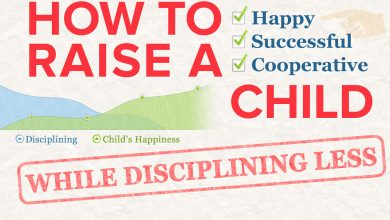
Has your child ever gotten stuck in the past?
Maybe they’re still upset about something you did. Or they can’t seem to let go of a past event or embarrassment. Whatever it is, you know they would be better off by processing it and letting it go—but they won’t.
In this episode, Carol and Anne share tips to help children process the past. A few simple words from you can improve your relationship, whether your child is 7 or 27.
This week’s Parenting Practice
This week, validate your child’s feelings, whether they’re 2 or 32 years old. Restate what you heard, or ask them to share more. It may be tempting to add your opinion, correction, or advice—but just stop at validation. See what resolves itself as your children know their feelings are heard.
Transcript of the podcast episode
Anne: You know? Sometimes, we have 5-year-olds parenting 5-year-olds.
Carol: That’s the truth. That would’ve been my parents. They could’ve used all of this.
Welcome to The Child Whisperer Podcast. I’m your host, Carol Tuttle, author of the bestselling parenting book, The Child Whisperer. I’m with my co-host, Anne Tuttle Brown.
Anne: “I am a Type 3 and was a single mom with two babies wearing all the hats and just trying to survive. We probably can’t even count the number of mistakes I made as a parent. My Type 4 child, now 27, cannot get out of the past. She constantly is accusing me of not trusting her. I feel constantly judged and condemned, she’s forever repeating old stories of her past and the mistakes she perceived I made. How do I help her to live in the present and quit moaning her youth? I am so proud of the mom and the person she is and think she’s doing a great job, and I want a better relationship with her.”
Carol: I think it’s great that she wants something better, so that’s a good sign that she’s getting worn out by this, and just the two Types here are kind of in conflict because you’ve got your Type 3 who wants to say, “All right, fine, I get it. Let’s move on.” and the Type 4 who is saying, “Well, I really want to be heard in this situation.” And the Type 4 daughter apparently has a need for validation that’s not yet been…that box hasn’t been checked off yet.
Anne: Yeah. If she’s bringing it up over and over again. And if the mom thinks, “Well, we’ve talked about it,” apparently, like it hasn’t been done how the daughter wants it to be handled. And so there might need to be some compromise there anyways, but…
Carol: Yeah, to me that’s just…
Anne: …the fact that it keeps coming up, it’s a sign it’s not resolved.
Carol: As a parent who made a lot of… I am the Type 3 mom who made a lot of mistakes, not consciously, you know. I’ve said many times I never woke up and said, “How can I mess up my children today?” but in spite of the fact that I wanted the best, I didn’t know what I know now. And so with my one son who’s a Type 2 secondary 4, probably the most error was with him not knowing him and his nature. And so, there’s been the most, sort of, effort on my part to connect with him as an adult because of that past. And I have been patient with it because I understand his need that it takes more time. And so, a Type 4 child, they’re going to put you on probation in a way, a Type 2 and a Type 4 child until they can see that you really mean it. You’re consistent, and that you really care, and so your probationary period could last a year or two. It’s true.
Anne: Could there be events that kind of stir it up again? Like, if this Type 3 mom kind of has a tendency for inconsistency…
Carol: Yeah, you could replay those patterns…
Anne: … for not following through…
Carol: …and it triggers the daughter.
Anne: So then it kind of distance again. So, it’s like two steps forward, one step back, kind of.
Carol: One thing I did was when I was…there were certain things being expressed of discontent, or stories from the past. That would be more of this, sort of, which is more typical for a Type 2 to be a little more passive aggressive to bring things up.
Anne: Well, it sounds like in the question, she says, “I want her to quit moaning her youth.” So obviously, she’s bringing…
Carol: Yeah. I had some of that, you know? And so…
Anne: …experiences back up.
Carol: In that moment, I made a choice to visualize this child as a 5-year-old or a 10-year-old in that moment, and finally being able to put to words what never were put to words when they were 5 or 8 or 10. And in that moment, I gave him the benefit of being that age and thought, “If they were 10 right now, what do they need to hear for me?” This emotion is coming from a child, part of them, not their adult self, and that child needs support from me right now that they never got back then. And I would listen and validate and understand and, “I can hear what you’re saying and that was really hurtful to you” and I wouldn’t try and move it along. I would place them in my mind’s eye as a child. Then as an adult, I’d had conversations that were more adult to adult to say, you know, I really… Like in this mom’s case, if you’re serving the other need, the emotional need by giving them that support, then you can have an adult conversation and say, “You know, I really acknowledge my wrongdoing, I acknowledge my mistakes. I really want to have a great relationship with you. What can I do to support you? Because I’m trying to support you and yet it doesn’t seem like it’s working.” So let’s ask, you know? It’s kinda like…
Anne: That would go a long way.
Carol: Yeah. And just say, “Tell me what that would look like for you so that my efforts really make a difference because I would like us to progress to a point where we both feel we’re healing from the past. And what do you need?” That’d be huge for a Type 4. And this would apply to a child…you know, we’re talking about 27-year-old child, but if you just say that to your 5-year-old Type 4, your 10-year-old Type 4, that has so much value because, for one, they are being given a say as their own authority to say, “I know what I need, I know what I want. Thanks for asking. I am my own authority.”
Anne: And not all Type 4s will just give you that. I mean, not all people, you know. Some people are more…
Carol: No, they won’t.
Anne: Yeah, most people aren’t just going to…they like to be invited. It’s more natural to be invited…
Carol: It’s safer.
Anne: … than to share that. Yeah.
Carol: The other feels like you’re demanding it, versus… The parent…
Anne: And when he’s not invited, the parent won’t respond but when…
Carol: The important thing to remember here is your job of being a parent doesn’t stop just because your child now is an adult, there’s a lot of unmet needs that you can help them come to fulfillment of that you weren’t in a position to early in their life, but as I teach in Mastering Affluence and in the Healing Center work that I offer at healwithcarol.com is emotionally, we don’t grow up if we have unmet emotional needs. We go back to being that 5-year-old who needs to be heard. We all do this. You do it with a spouse. You mean, anytime you’re emotionally triggered, that’s an unmet emotional need presenting and we revert back to the age in which that was a primary need of ours. That’s what I love about what’s in…The Child Whisperer teaches you the different stages of emotional needs and gives you clear direction and even the verbiage to use to help your children’s needs be met, so they’re not 27 and bemoaning their past.
Anne: Ages 3 to 6 years. The primary emotional need is coming into their own identity and power and feeling a sense of their own authority, and this is specifically speaking to Type 4s, but for all Types, their age, it’s about identity and power, and this is a very popular phrase that we’ve referred to this section before in other podcasts. And so, I would just encourage you to get your Child Whisperer book out, go to the Type of the child that maybe you’re having issues with that are presenting more readily, and turn to their Type under this emotional need. And it gives you phrases, “It’s okay for you to know what you want and make your own decisions.” “You are learning what is right for you.” “Trust your instincts.” And we’ve shared before that you could even use these phrases in your dialogue with your child.
Carol: If you’re a member of The Child Whisperer Facebook group, you may have noticed a pattern that I’ve noticed that we hear from more mothers of children between the ages of three and six, this age group. Because what’s happening is this push-pull, sort of difficulty. Let’s just take things ample of going to bed or sleeping. They’re going to start…
Anne: It’s like a power struggle all of a sudden.
Carol: Yeah. They’re going to give you…
Anne: That’s what I’ve noticed with my kids, like, they say terrible twos, and you know, we’ve changed that to terrific twos in The Child Whisperer world, but I was like, “Two was fine. It was when they hit three that I’m like…”
Carol: Well, they start to initiate their own sense of power. They’re practicing personal power.
Anne: They become more headstrong. It’s that power that…they’re pushing forward in what they want, and they can voice it more readily at three-years-old…
Carol: They get…they’re becoming…
Anne: …and so it’s like, “Oh…”
Carol: …verbal.
Anne: …”This is a little tricky.
Carol: So if you have that perspective, rather than, “My child is just being difficult,” “My child is practicing their own sense of power. How can I support them so we’re not in a power struggle where actually…”
Anne: You’re helping them to develop their own personal power. So, look at it as you’re on their team and you’re kind of helping to navigate this new power that they’re developing.
Carol: And so, when your child then grows up, they’re not going to keep running these patterns over and over with you. When you get to experience them over and over, you’ve set them up to be aligned with the truth of, “I am a powerful person, and I use my power with great wisdom,” and so you’re…
Anne: And they’ll love you for helping them develop that and honoring that rather than resenting you and still trying to get that validation.
Carol: So in this mom’s case, she’s seeing that there’s an unmet emotional need that’s not been resolved that was meant to be resolved much earlier in life that she gets to help support her child with now and then they’ll both advance to a more balanced relationship.,
Anne: What would you say to a parent who is making an effort and strides to create a better relationship with their child and it isn’t improving?
Carol: I had that situation where in the case of this same son, I was making a great effort. It had been a year of what I felt like was a probationary period where I initiated every contact, I initiated every gathering, and I knew that was on me and that I needed to show forth my goodwill and that he could trust me and build that trust. And after a year, I felt impressed to speak to him as an adult because I had presented many opportunities where I could hear him out and listen and validate his feelings. And I actually called him and I just said, “You know, I feel like I’ve really made an effort here and I really want to move forward with more reciprocity, though.” He goes, “Mom, I recognize I’ve never initiated anything with you for at least a year and I’m ready to make an effort with that. I just want you to know I’m aware of that, and I’m going to make more of an effort.”
Anne: So he was ready?
Carol: Yeah.
Anne: It just was a matter of you bringing it up and talking about it.
Carol: And a lot of that was being led by the spirit knowing, “It’s not time yet. Oh, now it’s time. Okay.” So my own instinct has been guided. You know, one of my most potent resources, all of my parenting timeline has been spiritual guidance. Trusting my intuition and that inner sense of knowing, and I knew it was too soon if it had been any earlier, but it was a clear prompting that it’s appropriate to do this now…
Anne: So maybe longer than a year.
Carol: …and to speak to this.
Anne: …for some parents, too.
Carol: Yeah. You know, your goal is if you’re hanging your sense of value on your child and your sense of being a successful and committed parent on your child’s perception of you, then that’s a very frail measurement. It will fail you. You have to know your own intention that you’re in integrity and how much you really care, and if you need evidence from your child that that’s accurate, that that’s really true, then you’re still needy. You got to do some of your own work.
Anne: Yeah. You can’t go to the 3 to 6-year-old section for your Type.
Carol: Yeah. That’s right. You’ve got to tell yourself those things…
Anne: And read those phrases to yourself.
Carol: …your parents never told you.
Anne: Kind of an interesting cycle, you know? Sometimes, we have 5-year-olds parenting 5-year-olds.
Carol: That’s the truth. That would have been my parents. They could’ve used all of this.
Anne: Wow.
Carol: I was validating them. I mean, I was going both ways. I was the parent, in so many ways, to my parents and to my children. That’s okay.
Anne: Well, you’ve done some work so you can say that now, right?
Carol: Yeah.
Anne: So the parenting practice this week is to validate your child’s feelings, whether they’re 2-years-old or 32-years-old.
Carol: And to just do that, leave it at that. Don’t add on your…
Anne: I know, it’s tempting.
Carol: …your own opinion, your next thought. Just leave it at that.
Anne: Well, as parents, you know, we want to…
Carol: Try it. That’s a real good challenge to say, “Can you just validate how your child’s feeling?”…
Anne: Some good…
Carol: …and not give a correction.
Anne: Some tips to do that, or you can restate what they’re saying in different words. You can just say, “Oh, that’s great. Tell me more.” It’s so tempting as a parent to want to fix it. You know, you want to support your kids and I want to fix this sometimes, but they don’t always need that. So just validate your child’s feelings. And I’ve been surprised with my children when I do this, how an issue just kind of simmers and resolves on its own as you just validate.
Carol: Because it’s really not about the issue. They just want to be heard and validated. That’s the priority, not what they’re expressing their feelings about.
Anne: Yeah. A lot of times, I think that…
Carol: It’s not even about the issue.
Anne: …my children, you know, getting very emotional. It’s just a matter of expressing it and exploring those emotions. It doesn’t…not necessarily something needs to be fixed or resolved. So just that validation helps them develop their own emotional power.
Carol: Thanks for listening. For more support, go to thechildwhisperer.com where you can purchase the book, subscribe to our weekly parenting practice email, and find a transcription and audio of the “Child Whisperer” podcast.
Anne: If you’re listening on iTunes, thank you for leaving your review. If you have a parenting question, please send it to [email protected].



